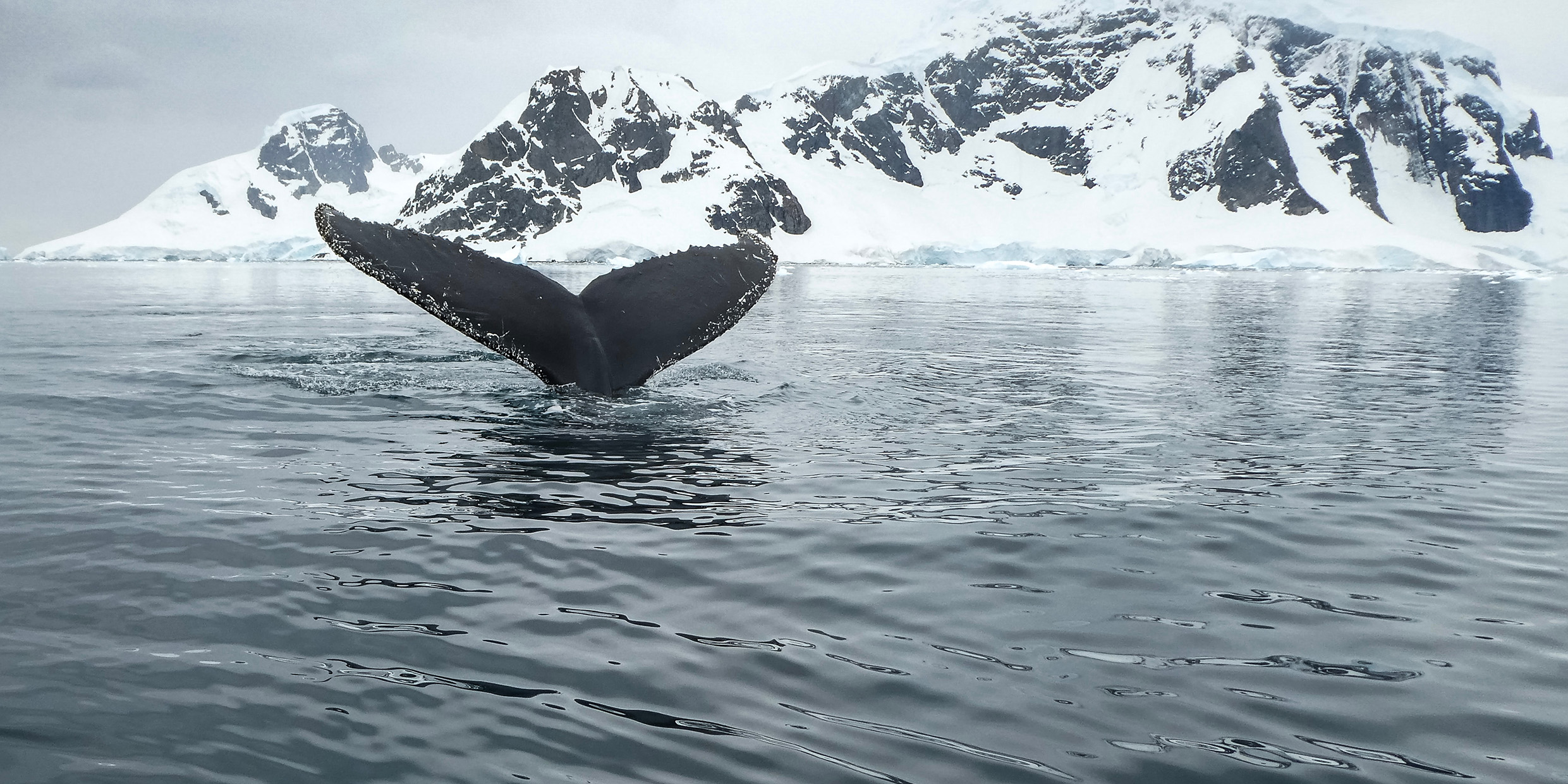Originally published 12 September 1988
Some weeks ago I swam with a wild dolphin. Well, not quite wild. This particular dolphin has taken up residence in the cold waters of Dingle Harbor in southwest Ireland and seems pleased to swim with whatever person comes his way. A lot of people have availed themselves of the opportunity, so many that the Dingle dolphin has become an important tourist attraction.
Many of the swimmers are motivated by the belief that being near a dolphin will cure depression. I talked to several people who swore that after 10 minutes in the dolphin’s company their cares and woes were sloughed away. I have cause to be suspicious of these dolphin cures. I came away from my own swim with a rather depressing cold.
But also with a new respect for the beauty and playfulness of cetaceans, the order of mammals including dolphins and whales. That respect is confirmed by a provocative book, Whale Nation by Heathcote Williams. It quickly climbed onto the British bestseller list and seems destined for international success.
The heart of Williams’ book is a long poem in praise of whales and their dolphin cousins. The poem is partly a compendium of facts:
Naked
With skin like oiled silk
Smooth as glass
They move at fifty miles an hour.
Attaining faultless streamlining
By subtly changing the shape of their bodies.
And partly the kind of misty-eyed adulation that inspires both happy and depressed swimmers in the harbor at Dingle:
They glide past each other
Swishing contemplatively
Testing congenial feelings
Judging the suppleness of motion
Judging sensation, with gentle discrimination.
William’s poem is illustrated with photographs of cetaceans at play (according to Williams, whales play for three times as long as they spend searching for food), mating, making music — and being slaughtered with ruthless efficiency.
The inevitable success of Whale Nation will not be due to the quality of the poem, which is little more than sentimental prose set in broken lines, nor to the factual information contained in the poem, which can be more readily assimilated elsewhere. Rather, the book is powerful propaganda on behalf of whales, and plays skillfully upon deep human emotions — guilt, pity, abhorrence of death.
Williams cloaks his propaganda with the authority of science, mainly by peppering his poem with quantitative facts: The sea covers seven-tenths of the globe; water is 800 times denser than air; whales evolved 50 million years ago; the brain of a Rorqual whale is six times bigger than a man’s; a blue whale has a half-ton heart, eight tons of blood, seven-gallon testicles, and eats a million calories a day; and so forth.
Behind this numbing barrage of numbers there is a heap of speculation. Williams is not reluctant to read the whales’ minds. He hears in whale songs:
Accounts of the forces of nature;
The minutiae of a shared consciousness;
Whale dreams;
The accumulated knowledge of the past;
Rumors of ancestors.
He tells us that whales breed “with ecological consideration” and “acknowledge minds other than their own.” Such statements surely tell us more about the minds of humans than the minds of whales.
Discussing whale sex Williams piously asserts that “the male member is erected voluntarily.” I’m not quite sure what this means, or how it is that Williams — or his source — knows what’s going on in the complex physiology/psychology of whale sexual behavior. But the point has an interesting aside. According to St. Augustine, Adam was able to achieve voluntary erections in Paradise, but after the fall he became subject to passion. This bit of theological trivia (for which I am indebted to reviewer John Carey) suggests the essential message of Williams’ poem: Whales live in a state of unfallen grace from which humans have excluded themselves by meanness and greed. We are offered the myth of whale innocence to replace the myth of Eden. Whale Nation is substantially myth. It is pro-whale propaganda cagily disguised as poetry and science. But pro-whale propaganda is exactly what the whales need.
The most moving parts of Williams’ poem are descriptions of the gruesomely-efficient killing technologies that have brought certain species of whales to the brink of extinction. Search helicopters, submarine radar, cannon-fired harpoons with explosive heads, massive grappling machinery, factory ships the size of aircraft carriers — all make unequal the encounter between whales and humans. Whatever the true nature of whales, whatever the content of their songs, whatever the subtlety of their inner lives, this much is certain — they are without technology.
When I swam with the Dingle dolphin this grim fact impressed me most: In spite of the dolphin’s superior speed and power, perfect adaptation to its element, and potentially sapient intelligence, puny, unadapted me, floundering about in cold water, could easily — with appropriate hand-held technology — have joined it to the hundreds of thousands of other dolphins that die each year by human artifice.
One post-Eden technology can only be redressed by another. The technology of killing can be countered by the technology of propaganda. To this end one wishes Williams’ book the worldwide success it will surely have.



